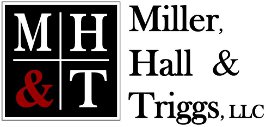By: Joshua D. Herman
On December 20, 2019, Illinois passed SB 1754 into law, imposing new obligations on public employers.
Illinois public employers (governments, school districts, park districts and other public organizations) will now have to provide regular updates and information regarding their employees to public labor unions, as well as face new obligations to avoid engaging in unfair labor practices. Originally proposed to address limited concerns under the Illinois Governmental Ethics, Senate Bill 1754 was amended to impose new requirements on public employers in Illinois. The bill was passed as Illinois Public Act 101-0620 on December 20, 2019 and was effective immediately.
Among other changes to the law, the bill adds three new Freedom of Information Act (FOIA) exemptions to 5 ILCS 140/7.5:
“(oo) Information prohibited from being disclosed under the Illinois Educational Labor Relations Act.
(pp) Information prohibited from being disclosed under the Illinois Public Labor Relations Act.
(qq) Information prohibited from being disclosed under Section 1-167 of the Illinois Pension Code.”
New Affirmative Reporting Obligations to Unions
The Illinois Public Labor Relations Act and similar provisions of the Illinois Educational Labor Relations Act have been changed to require substantially more of public employers. Many collective bargaining agreements provide that the employer shall provide certain employee information to a union upon request. Now, unless otherwise agreed, a public employer must do the following:
At least once each month and upon request, public employers must provide “exclusive bargaining representative[s] with a complete list of the names and addresses of the public employees in the bargaining unit, provided that a public employer shall not be required to furnish such a list more than once per payroll period. The exclusive bargaining representative shall use the list exclusively for bargaining representation purposes and shall not disclose any information contained in the list for any other purpose.” Further, when providing this list, employers must now also provide an Excel file (or other agreeable editable digital file) that includes:
- the employee’s job title,
- worksite location,
- work telephone numbers,
- identification number if available,
- any home and personal cellular telephone numbers on file with the employer,
- date of hire,
- work email address, and
- any personal email address on file with the employer.
Further, within 10 calendar days from the date of hire of a bargaining unit employee, the public employer must provide to the exclusive representative, in an electronic file or other mutually agreed upon format, the foregoing list of information for the new hire.
Employers Prohibited from Disclosing Certain Employee Information
The law creates a new section in the IPLRA prohibiting employers from disclosing the following information:
- the employee’s home address (including ZIP code and county);
- the employee’s date of birth;
- the employee’s home and personal phone number;
- the employee’s personal email address;
- any information personally identifying employee membership or membership status in a labor organization or other voluntary association affiliated with a labor organization or a labor federation (including whether employees are members of such organization, the identity of such organization, whether or not employees pay or authorize the payment of any dues or moneys to such organization, and the amounts of such dues or moneys); and
- emails or other communications between a labor organization and its members.
The new restriction mandates that employers provide or report such requests to the union or employee, depending on the circumstances. Violations of these requirements may be pursued as an unfair labor practice before the ILRB or in an action before a circuit court.
The purpose of these new restrictions is unclear, and they unnecessarily complicate information processing by public employers because the prohibition does not apply to most situations, stating explicitly that it “does not apply to disclosures (i) required under the Freedom of Information Act, (ii) for purposes of conducting public operations or business, or (iii) to the exclusive representative [i.e., the union].”
As a consequence of these new prohibitions, public bodies should exercise caution and seek legal advice before responding to requests for the restricted information from anyone other than the union.
Union Access
While not typically a problem and generally provided for in most collective bargaining agreements, the new law also codifies a union representative’s right of access to employees in the bargaining units they represent by adding a new section 5 ILCS 315/6(c-10).
Dues Deductions
The new law also codifies an employer’s obligation to deduct dues and other labor organization payments from employees pursuant to the employees agreement. The law clarifies that such dues deduction authorizations may be made irrevocable for long periods of time.
Employers must begin deductions as soon as practicable, but no later than 30 days after receiving written notice of an employee’s authorization for the same. Employers must transmit the deductions to the union no later than 30 days after they are made. Deductions must continue until the employee notifies the employer they have revoked their authorization in writing in accordance with the terms of the authorization, or the employee is no longer employed by the employer in a bargaining unit position.
Violations of these requirements are a breach of the employer’s duty to bargain and an unfair labor practice.
The Act also established a new section 5 ICLS 315/6.5 providing a defense to employers and unions following Janus as to any claims by employees seeking reimbursement for fair share fees that employees may have previously paid.
New Unfair Labor Practices
In addition to the foregoing obligations, the Act creates additional unfair labor practices by amending Section 10 of the ILRA with the following:
(8) to interfere with, restrain, coerce, deter, or discourage public employees or applicants to be public employees from: (i) becoming or remaining members of a labor organization; (ii) authorizing representation by a labor organization; or (iii) authorizing dues or fee deductions to a labor organization, nor shall the employer intentionally permit outside third parties to use its email or other communication systems to engage in that conduct. An employer’s good faith implementation of a policy to block the use of its email or other communication systems for such purposes shall be a defense to an unfair labor practice; or
(9) to disclose to any person or entity information set forth in subsection (c-5) of Section 6 of this Act that the employer knows or should know will be used to interfere with, restrain, coerce, deter, or discourage any public employee from: (i) becoming or remaining members of a labor organization, (ii) authorizing representation by a labor organization, or (iii) authorizing dues or fee deductions to a labor organization.
Further, the law explicitly requires employers to “refer all inquiries about union membership to the exclusive bargaining representative.” Therefore, the public bodies should be cautious in handling such requests.
All public bodies that are party to collective bargaining agreements should immediately review its obligations under this new law and take steps to come into compliance.
Posted in FOIA/OMA, Joshua Herman, Labor and Employment, Local Government and Public Finance
